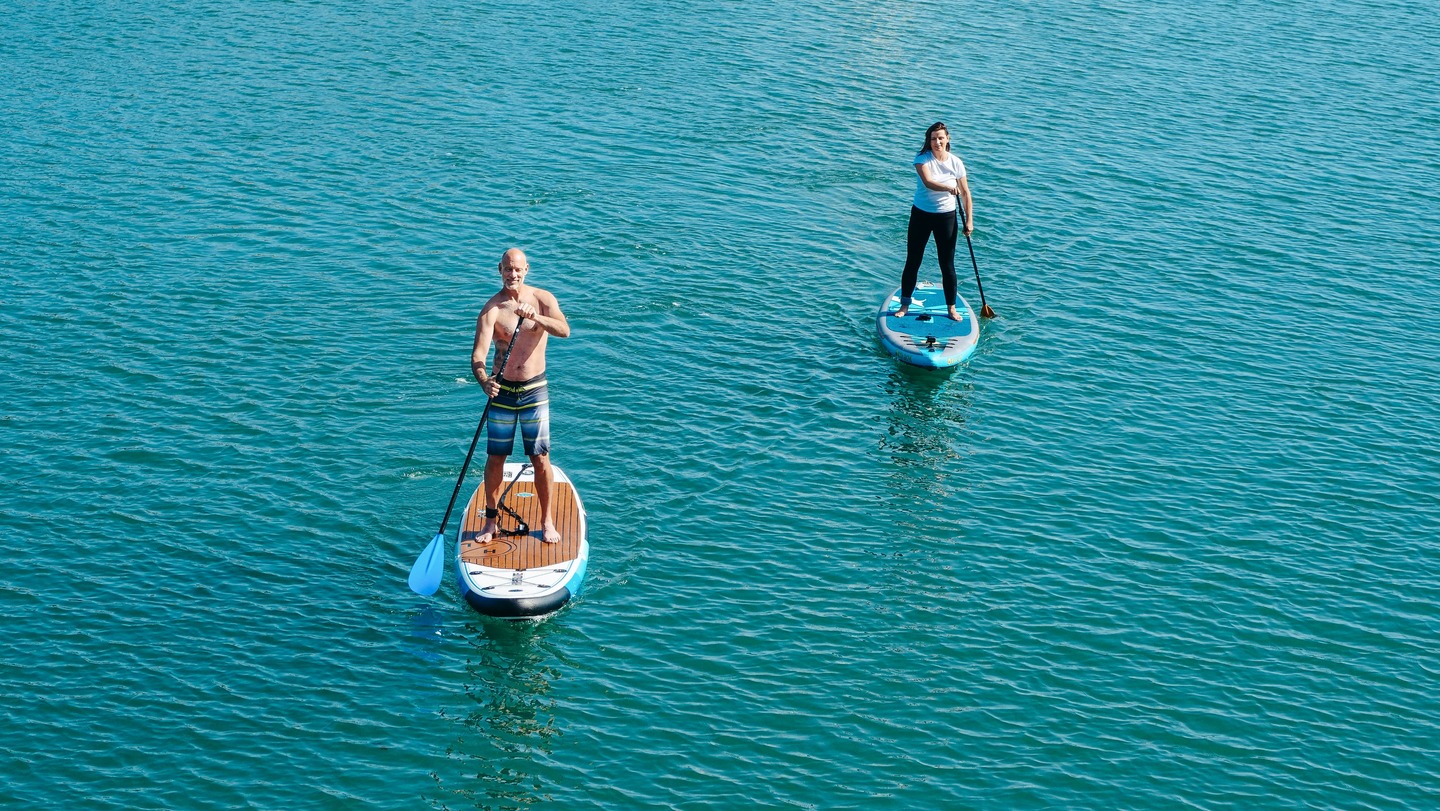Article, Part 1
The Importance of Outdoor Physical Activity for Cancer Survivor

Get outdoors and explore stand-up paddle (SUP) and SUP Yoga activities
A cancer diagnosis is an experience that transforms a person’s life. In addition to the physical, psychological, and emotional challenge, the journey of survival depends on a holistic approach for recovery and maintaining health. A crucial part of this approach is outdoor physical activity, which can have a great impact on the live quality of cancer survivors [1], being one of the essential pillars of the OACCUs project.
A cancer diagnosis is an experience that transforms a person’s life. In addition to the physical, psychological, and emotional challenge, the journey of survival depends on a holistic approach for recovery and maintaining health. A crucial part of this approach is outdoor physical activity, which can have a great impact on the live quality of cancer survivors [1], being one of the essential pillars of the OACCUs project.
Among activities that are gaining prominence in this context, are stand-up paddle boarding (SUP) and yoga on a stand-up paddle board (SUP Yoga). SUP is a water activity that involves paddling with a one blade paddle, while standing on a board. According to the level of experience and participant proficiency, the SUP boards can be stable or more challenging for balance.
This sport offers a range of physical and psychological benefits for cancer survivors:
1. Connection with Nature: SUP exposes individuals to the calming hues of nature, surrounded by greenery and blue waters, along with safe sunlight exposure. This exposure is crucial for mental well-being and bone immune health [2].
2. Physical Rehabilitation: SUP practice contributes to enhancing muscle strength, balance, and coordination [3]. These aspects are often compromised during cancer treatment, making such activities instrumental in the recovery process.
3. Stress Reduction: Beyond its physical benefits, SUP creates a tranquil environment for cancer survivors. The serene waters foster a peaceful atmosphere, aiding in stress and anxiety reduction—common challenges faced by individuals post-cancer treatment [4].
4. Emotional Well-being: The sensation of floating on the water imparts a profound sense of freedom and well-being. This, in turn, contributes to the holistic recovery of individuals, addressing not only the physical but also the psychological and emotional aspects of their well-being.
Yoga on a stand-up paddle board combines the benefits of SUP with ancient yoga practice, enhancing the mind-body connection. This unique activity strengthens core muscles, improves stability, and helps cancer survivors reconnect with their bodies, relieve tension, and find peacefulness.
Enjoy a sunny day and go practice outdoor in nature, try SUP and/or SUP Yoga!!
For more information on the OACCUs project, check out the social media accounts on Instagram,Twitter,Facebook or LinkedIn!
Author: Beatriz Gomes, Faculty of Sport Sciences and Physical Education, University of Coimbra
Sources:
[1] Lesser, I. A., Nienhuis, C. P., & Belanger, L. (2021). Active by nature: exploring cancer survivors' exercise barriers, facilitators, preferences, and psychosocial benefits of engaging in outdoor physical activity. Supportive care in cancer: official journal of the Multinational Association of Supportive Care in Cancer, 29(7), 4095–4103. https://doi.org/10.1007/s00520-020-05938-4
[2] González Maglio, D. H., Paz, M. L., & Leoni, J. (2016). Sunlight Effects on Immune System: Is There Something Else in addition to UV-Induced Immunosuppression? BioMed research international, 2016, 1934518. https://doi.org/10.1155/2016/1934518
[3] Schram, B., Hing, W., & Climstein, M. (2016). Profiling the sport of stand-up paddle boarding. Journal of sports sciences, 34(10), 937–944. https://doi.org/10.1080/02640414.2015.1079331
[4] Yi, J. C., & Syrjala, K. L. (2017). Anxiety and Depression in Cancer Survivors. The Medical clinics of North America, 101(6), 1099–1113. https://doi.org/10.1016/j.mcna.2017.06.005
